SC wraps up Bhutto case reference
Likely to announce its brief opinion prior to Justice Sardar Tariq Masood's retirement
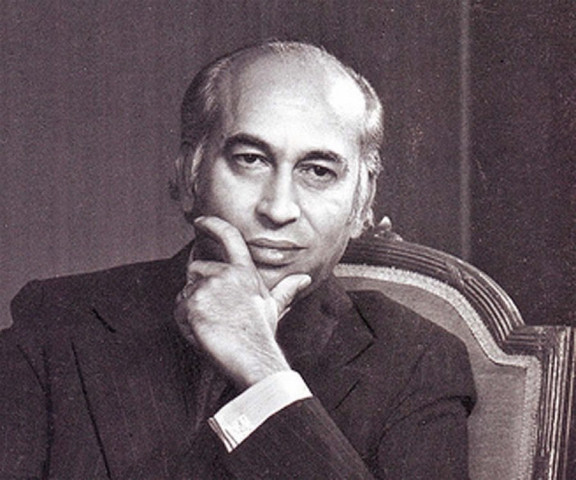
The Supreme Court reserved its opinion after concluding the hearing of a presidential reference seeking to revisit the apex court’s 1979 verdict in the Zulfikar Ali Bhutto case.
Following the conclusion of arguments, Chief Justice of Pakistan (CJ) Qazi Faez Isa, leading the nine-member bench hearing the reference, noted that the court is reserving its opinion, with a brief version to be unveiled before the retirement of SC’s Senior Puisne Judge Sardar Tariq Masood.
Justice Masood is scheduled to retire on March 8.
Earlier, Justice Isa asked one of the amici curiae, Raza Rabbani, if the court could issue a brief opinion in this case. Rabbani, who belongs to the PPP, replied in the affirmative.
“The SC can utilize Article 187 of the Constitution to ensure complete justice," he said.
Justice Muhammad Ali Mazhar noted that if the court utilized Article 187, it would deliver a verdict in the case rather than offering an opinion.
The Lahore High Court (LHC) had sentenced former prime minister and PPP founder Zulfikar Ali Bhutto to death on March 18, 1978, for ordering an assassination attempt on Ahmed Reza Kasuri, one of the founding members of the PPP—an attack that resulted in the death of Kasuri’s father.
The Supreme Court, with a majority vote of 4 to 3, had upheld the LHC verdict on February 6, 1979. The PPP founder was executed on April 4 of the same year.
During the PPP’s last rule between 2008 and 2013, former president Asif Ali Zardari had sent the reference to the apex court, requesting an opinion after analyzing the SC’s and the LHC judgments in the Bhutto case based on the fundamental rights guaranteed under the Constitution.
Raza Rabbani stated in his arguments that during Bhutto's case, neither the Lahore High Court (LHC) nor the Supreme Court were functioning under the Constitution as martial law was enforced in the country and there was no fair trial process in Bhutto's case.
He said after the attack on Ahmed Raza Kasuri, six cases were registered but Zulfikar Ali Bhutto was not nominated in any of them. He said at that time Justice Aslam Riaz Hussain was both a Supreme Court judge and the acting Punjab governor.
Justice Jamal Mandokhel remarked that under martial law orders, anything could have happened. Then even governors could conduct trials, he said.
Rabbani stated that Bhutto’s wife Nusrat Bhutto had challenged the arrests of PPP leaders in the Supreme Court when Justice Yaqoob was the CJ.
“As soon as the petition was admitted for hearing, Justice Yaqoob was removed from the position of Chief Justice of Pakistan and Justice Anwarul Haq was then appointed in his place.”
When Justice Isa asked as to what details the government had gathered about the whereabouts of one of the approvers in the Bhutto case, Masood Mahmood, Additional Attorney General Aamir Rehman replied that they were still looking for his details.
“NADRA [the National Database Registration Authority] also does not have the old record. We have written to three ministries to obtain the record,” he said.
Ahmed Raza Kasuri, who was present in the courtroom, told the court that he filed a private complaint against Bhutto in 1977.
CJ Isa inquired, "The murder occurred in 1974, why did you take so long?"
When Kasuri replied that the case had been closed earlier, the judge asked why he did not knock on the doors of relevant forums to reopen the case immediately after its closure.
When Kasuri told the bench that he could not do that at that time as Bhutto was the prime minister then, Justice Isa wondered as to how he accepted this pressure despite being part of an influential family with established connections and resources.
Justice Jamal Mandokhail added, "You did not challenge the order to close the inquiry."
The additional attorney general, providing a brief explanation, stated that Bhutto's case was closed based on a magistrate's order.
“The investigation was, however, reopened without any new judicial order. The entire trial proceeded based on an investigation that was not legal. Apparently, it seems that government intervention was present at that time,” he said.
The court later reserved its opinion on the reference.



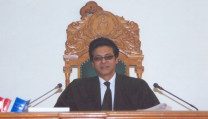
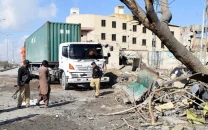
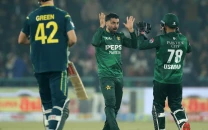
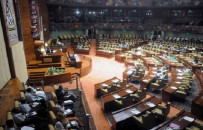












COMMENTS
Comments are moderated and generally will be posted if they are on-topic and not abusive.
For more information, please see our Comments FAQ